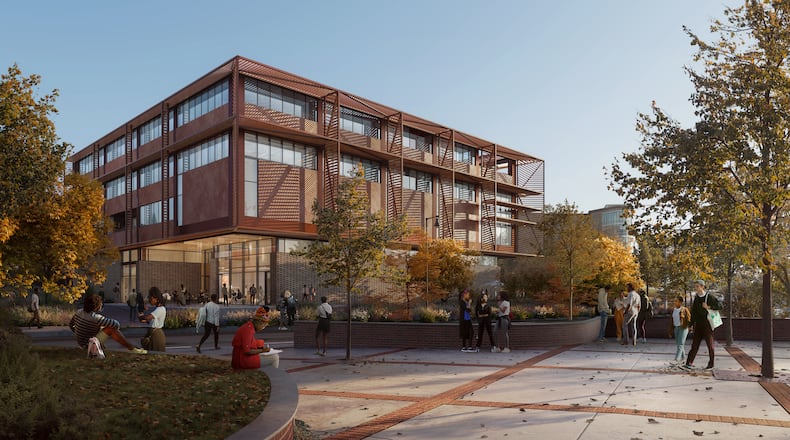Spelman College on Friday broke ground on one of its biggest projects in decades — an $86 million center that also aims to build stronger ties with the Westside Atlanta community.
The college’s Center for Innovation and the Arts will be the first facility built outside the gates of the 141-year-old school. It will be outside the gated entrance, adjacent to its parking deck.
“Spelman has for so long been behind the wall, and this is the first chance to connect with the community,” said Jeanne Gang, founding principal and lead architect of Studio Gang, the firm designing the center.
The first level of the three-floor center will house the college’s art gallery, a cafe and a theatre for students to share their work with the public. The loft-like center will also be available for some community meetings.
“We call this project our front porch to the community,” said Spelman’s president, Mary Schmidt Campbell.
Credit: Contri
Credit: Contri
Spelman leaders said strengthening the relationship with the community is important to them in part because of the nascent arts scene in the area. There are about a dozen arts organizations and galleries near the campus.
Campbell said the center will house all of the college’s arts programs, which include dance, documentary filmmaking, music, photography and theater. The number of arts majors at Spelman has doubled from a few years ago, Campbell said.
Gang said energy-efficient materials will be used to build the 84,000-square-foot center to produce high air quality. It will be the first academic building Spelman has constructed in about a quarter-century. The center will be named after Campbell, who is retiring in June.
Spelman has been working on the plans for about a decade. Campbell, a longtime arts leader, recalled being invited to Spelman in 2014, a year before she became the college’s president, to discuss the idea.
The private, historically Black college for women raised money for the center as part of its capital campaign. Campbell said the college raised about $130 million in new financial aid to provide student scholarships.
Construction was delayed by the COVID-19 pandemic. Spelman hopes to complete the project by 2024.
About the Author
Keep Reading
The Latest
Featured



